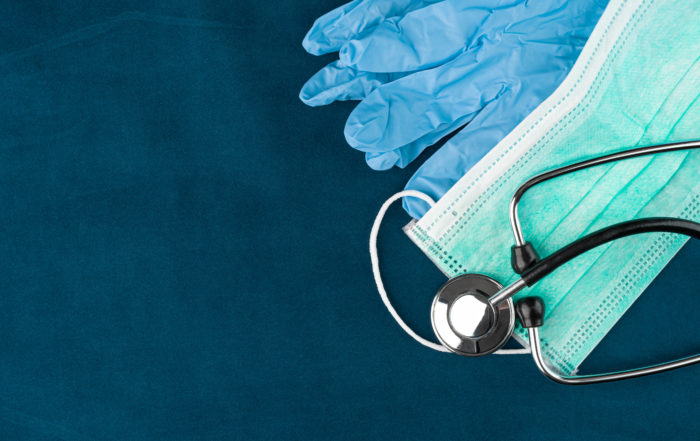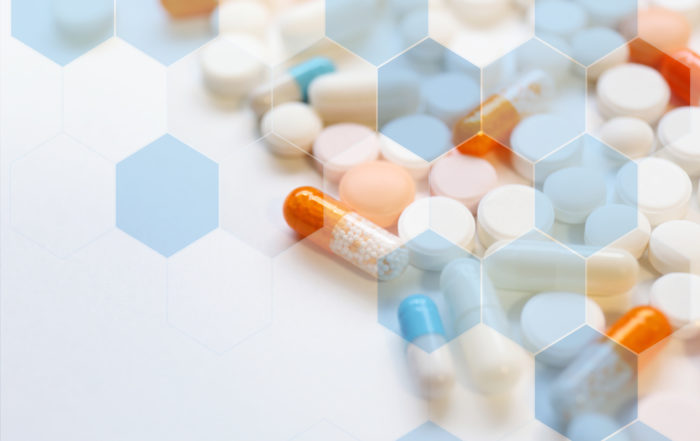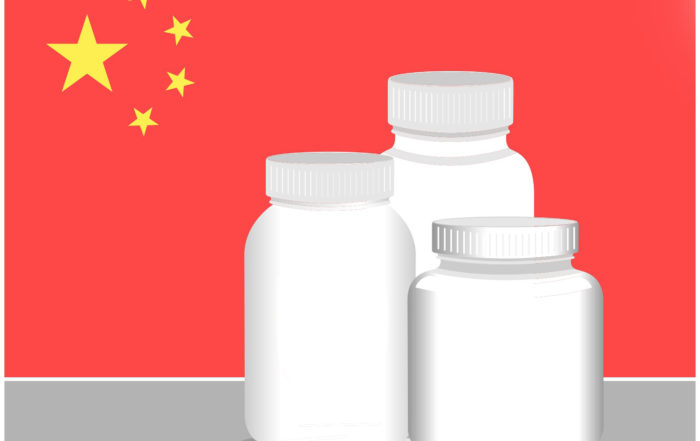
COVID-19 Response Focuses Renewed Interest in
FDA’s Stance on Donations of FDA-Regulated Products
By Kelly J. Y. Cho, Sidley Austin LLP
Introduction
As hospitals and healthcare systems nationwide wrestle with a severe shortage of key medical equipment and therapeutics to battle the COVID-19 pandemic, we are witnessing a surge in donations of these much-needed supplies. Pharmaceutical and device manufacturers are stepping forward, donating supplies of personal protective equipment (PPE), diagnostics, and therapeutics to benefit the COVID-19 response. Companies from various non-healthcare sectors are increasingly retooling their facilities and converting production lines to make sorely needed face shields, gloves, and hand sanitizers. Individuals and local communities are also contributing through grassroots movements and delivering donations of PPE, including even home-sewn masks, to frontline healthcare workers.
This response has rekindled interest in a foundational question of FDA law: Does FDA’s jurisdiction over drugs and devices extend to products that are not sold or marketed, but donated in response to an urgent public health emergency—and what will the agency’s approach be to enforcement with respect to such donations? As it stands, would-be benefactors as well as beneficiaries—especially those that are not accustomed to FDA regulation—may be hesitant to proceed with such donations given questions about whether and how FDA will exercise jurisdiction and enforcement discretion in such circumstances.
To be sure, FDA recently has issued multiple guidances stating that it intends to exercise enforcement discretion with respect to manufacturers, distributors, and importers of certain COVID-19 response products such as face masks, respirators, and ventilators, as long as they comply with these guidances. For example, the agency has said that it would not object to individuals’ distribution and use of improvised PPE when FDA-cleared masks are not available.[1]
In addition, Secretary Alex Azar’s Declaration under the Public Readiness and Emergency Preparedness (PREP) Act issued on March 10, 2020, and the subsequent advisory opinion published by the Department of Health and Human Services’ Office of the General Counsel on April 14, 2020, have eased some concerns by providing potential immunity to claims of loss for a broad range of activities related to medical countermeasures against COVID-19.[2] Where they apply, these provisions specifically extend to donations and “apply to a covered countermeasure regardless of whether such countermeasure is obtained by donation, commercial sale, or any other means of distribution . . . .”[3]
Despite these developments, fundamental questions remain about the extent to which FDA may—and will—exercise jurisdiction over donated goods for COVID-19 response. This article will explore: 1) statutory arguments for cabining FDA’s jurisdiction to commerce, not donation; 2) case law supporting potential limits on FDA’s authority over certain donations; and 3) FDA’s prior guidance suggesting a targeted, risk-based approach to regulating donated goods.
The Statutory Background: “Interstate Commerce” and “Held for Sale”
The Federal Food, Drug, and Cosmetic Act (FDCA) does not explicitly address whether FDA can assert jurisdiction over charitable donations of articles that would normally be subject to FDA oversight. However, the statutory concepts of “interstate commerce” and “held for sale,” which are often used to delineate the bounds of the agency’s jurisdiction, lend support to an argument that donations may fall outside the ambit of the agency’s authority.
FDA’s regulatory authority derives from Congress’s constitutional powers to regulate interstate commerce.[4] Multiple provisions of the FDCA explicitly hinge on the product being linked to “interstate commerce.” For example, the first three prohibited acts in FDCA Section 301 contemplate products moving in interstate commerce, as these three provisions prohibit the movement of adulterated or misbranded drugs and devices from the moment of their introduction into interstate commerce to their receipt by the ultimate consumer.[5] “Interstate commerce” is defined in the FDCA as “(1) commerce between any State or Territory and any place outside thereof, and (2) commerce within the District of Columbia or within any other Territory not organized with a legislative body.”[6]
The FDCA’s reach also extends to articles even after they have completed their transit in interstate commerce and have come to a rest where they are “held for sale.” For example, the statute prohibits any act that results in an article being adulterated or misbranded “if such act is done while such article is held for sale (whether or not the first sale) after shipment in interstate commerce and results in such article being adulterated or misbranded.”[7] FDA also has authority to seize adulterated or misbranded drugs when “introduced into or while in interstate commerce or while held for sale (whether or not the first sale) after shipment in interstate commerce.”[8]
To be sure, the Supreme Court has given the notion of interstate commerce a wide berth in a variety of settings, but it also has recognized certain limitations.[9] Accordingly, given these jurisdictional hooks, a donation that falls outside of “interstate commerce” and is not “held for sale” could arguably be excluded from FDA’s jurisdiction.
Case Law Limiting FDA’s Authority Under the “Held for Sale” Clause
Courts also have relied on an analysis of these statutory provisions to recognize certain cabining of FDA’s powers to transactions of a commercial nature. These cases lend credence to an argument that some donations may be beyond the reach of certain of the agency’s statutory authorities.
For example, the Ninth Circuit’s decision in United States v. Geborde is instructive. That case involved a twenty-five-year-old aspiring disc jockey and musician defendant, who had concocted a recreational drug called gamma hydroxyl butyrate (GHB) and given it away for free at parties and other social settings.[10] Geborde was charged and convicted by a jury, inter alia, with misbranding of a drug held for sale in violation of FDCA Section 301(k). The Ninth Circuit, however, reversed the conviction, holding that the government failed to establish that Geborde had held the drug for sale. The court concluded that “the phrase ‘held for sale’ plainly contemplates a sale” and that “the FDCA was not designed to deal with the wholly gratuitous distribution of homemade substances.”[11]
The Ninth Circuit re-addressed Geborde years later in United States v. Kaplan.[12] Kaplan involved a physician-defendant who had re-used single-use plastic needle guides during prostate biopsies and was convicted for conspiracy to commit adulteration in violation of FDCA Section 301(k). In construing the meaning of “held for sale” in the statutory provision, the Kaplan court acknowledged the holding in Geborde that “held for sale” does not reach “homemade products distributed in a noncommercial setting at no cost to the recipients.”[13] The panel clarified, however, that it would look more broadly to the commercial nature of the transaction, actors, and products to determine whether the “held for sale” element was met.
Under this approach, the court concluded that—unlike the defendant in Geborde, who was a “noncommercial actor, in a noncommercial setting, distributing homemade drugs completely free of charge”—the defendant in Kaplan was a medical practice operating for profit and financially benefitting from the cost of products used in the course of treatment including the biopsies. Accordingly, the panel concluded that the defendant was “a commercial actor in a commercial setting, using a commercial product” and met the “held for sale” element.[14]
These cases lend support for donations potentially falling outside the ambit of FDA’s jurisdiction and suggest that courts may scrutinize more closely the donations of commercial actors than noncommercial actors engaged in donating homemade goods. Applying this framework to COVID-19-related donations, FDA and reviewing courts may be less keen to probe donations from noncommercial actors—such as masks sewn by individual volunteers—compared to, for example, medical supply donations made by actors ordinarily in the business of manufacturing or marketing these products.
FDA’s Assertion of Jurisdiction Over Donated Goods
FDA has issued a limited number of regulations and guidance documents addressing its approach to charitable donations.
The Compliance Policy Guide (CPG) provides some guidance about the agency’s approach. For example, FDA’s guidance to its staff on when they should recommend a criminal prosecution or civil injunction based on “purchasing conduct” that violates FDCA Section 301(a) or 301(d) supports certain limits on FDA’s regulation of donations.[15] “Purchasing conduct” is defined as “causing the introduction of violative products into interstate commerce through purchasing or ordering such products.” This guidance provides some support to the notion that FDA acknowledges limitations on its jurisdiction to bring charges against charitable donations or, at a minimum, is more apt to exercise enforcement discretion in such circumstances.
In addressing radiation-emitting electronic products, the CPG suggests that non-commercial activities may be beyond the agency’s reach under the “introduction into commerce” clause. FDCA Section 583(a)(1) prohibits manufacturers from introducing, or delivering for introduction, into commerce an electronic product that is not certified appropriately. FDA considers such a product to have been “introduced into commerce” if it “has been offered for sale or assembled by a person engaged in the business of assembling that product.”[16] However, if that person “in no way receives compensation for the assembly and use of the product,” he or she would not be deemed engaged in the business.[17]
On the other hand, a CPG from 1980 opines that “[f]rom the legal point of view, the Federal Food, Drug, and Cosmetic Act requires that a drug distributed through charitable channels be in compliance with the applicable legal provisions in the same manner as a drug distributed commercially.”[18]
FDA has articulated a more tailored regulatory approach to donations of products under its jurisdiction in certain circumstances, as described below.
Prescription Drug Samples
Every year, significant quantities of prescription drugs are distributed as drug samples to physicians, but not all end up being used. Many of these unused samples are then donated to charitable institutions, either for dispensing to patients or for further donation for overseas missions.
FDA has long expressed concerns about drug sample donations. According to the agency, many of these donated samples have been of “questionable quality”— due to, for example, their age, adverse storage conditions, recall status, and/or investigational status—which would pose a legitimate risk to patients who receive these products.[19] Drugs could also become further adulterated or misbranded during the donation process, particularly if they were shucked from their original packaging and repackaged, and donations could add additional risks of tampering, theft, and diversion.
Accordingly, the agency initially took the position that samples provided to physicians should only be used under their professional supervision and that any other disposition was illegal. FDA, however, was forced to modify its position in response to several court rulings that disagreed with the agency’s categorical approach.[20] As a result, the 1980 CPG provided guidelines that entities could follow to “comply with the meaning and intent of the [FDCA], and to insure the safety and integrity of drugs” when donating free physician samples. These guidelines advised, inter alia, that the sample drugs remain in their “original, unopened packages” during the donation process and that the sample drugs be screened and sorted by a responsible collection agency to dispose of recalled, outdated, or investigational drugs before they are provided to physicians or hospitals.
These guidelines largely remain in the regulations FDA issued in the late 90s as part of its efforts to implement the Prescription Drug Marketing Act (PDMA). In promulgating 21 C.F.R. § 203.39, FDA sought to strike a balance between the goals of preventing drug diversion and making drugs available to the underserved. The regulations accordingly allow charitable institutions to solicit and receive surplus drug samples from licensed practitioners as long as they comply with the requirements contained therein. These requirements include that a drug sample be received in its “original, unopened packaging with its labeling intact,” be examined by a licensed practitioner or registered pharmacist at the recipient institution for adulteration or misbranding, and that charitable institutions notify FDA of any significant loss or theft of the samples within five working days.
FDA has also stated more recently that it continues to “strongly discourage[]” the donation of drug samples by any organization other than the manufacturer and that manufacturers should also comply with § 203.39 when donating drug samples to a relief effort.[21]
Donations to International Humanitarian Relief Efforts
FDA has also issued “Questions and Answers for the Public,” a document that provides guidance to non-profit organizations donating drugs or sending medical groups with pre-arranged medical supplies for international humanitarian efforts.[22]
Throughout the document, FDA emphasizes the importance of both the donor and recipient assuring the safety, efficacy, and quality of the drugs being donated. To that end, donating firms must demonstrate that their manufacturing processes consistently produce drugs of expected identity, strength, quality, and purity, and that these drugs are properly transported and stored. The document also discourages individual consumers and small groups from donating drugs to relief efforts because these donors will likely be unable to provide assurance of the drug products’ quality, and it will not be cost-effective for the relief organizations who must sort through the donations.
With respect to drugs that have expired or are near expiration, the document suggests that FDA may not object to their donations or use in the event of a U.S. shortage if FDA is provided sufficient information showing that the drugs are safe and effective and meet quality specifications.
Conclusion
There remain unanswered questions about the extent to which FDA can and will assert jurisdiction over donations of products otherwise subject to its oversight. FDA has not spoken comprehensively on the issue of donations that would directly inform COVID-19-prompted donations. The agency’s prior guidance, however, offers insights as to the issues the agency has been historically concerned about for donations. Of note, FDA has emphasized the importance of ensuring the safety, efficacy, and quality of drugs being donated and minimizing the potential for their diversion. Finally, regulators and courts may subject commercial actors to a more stringent standard than an individual or organization making donations of a purely charitable nature.
The views expressed in this article are exclusively those of the author and do not necessarily reflect those of Sidley Austin LLP and its partners. This article has been prepared for informational purposes only and does not constitute legal advice. This information is not intended to create, and receipt of it does not constitute, a lawyer-client relationship. Readers should not act upon this without seeking advice from professional advisers.
[1] FDA, Guidance for Industry and Food and Drug Administration Staff, Enforcement Policy for Face Masks and Respirators During the Coronavirus Disease (COVID-19) Public Health Emergency (Revised) at 3 (Apr. 2020), https://www.fda.gov/media/136449/download.
[2] See 85 Fed. Reg. 15,198 (Mar. 17, 2020).
[3] 42 U.S.C. § 247d-6d(a)(5); see id. at § 247d-6d(a)(2)(B), 247d-6d(b)(8).
[4] See, e.g., Hipolite Egg Co. v. United States, 220 U.S. 45, 57 (1911) (stating that the Pure Food and Drug Act of 1906, the precursor to the FDCA, rested upon the power of Congress to regulate interstate commerce).
[5] See FDCA Section 301(a)–(c) (21 U.S.C. § 331(a)–(c)); see also United States v. Sullivan, 332 U.S. 689, 696, 68 S. Ct. 331, 335–36, 92 L. Ed. 297 (1948).
[6] FDCA Section 201(b) (21 U.S.C. § 321(b)).
[7] FDCA Section 301(k) (21 U.S.C. § 331(k)).
[8] FDCA Section 304(a) (21 U.S.C. § 334(a)).
[9] See, e.g., United States v. Lopez, 514 U.S. 549 (1995) (recognizing limits on interstate commerce in educational setting).
[10] United States v. Geborde, 278 F.3d 926 (9th Cir. 2002).
[11] Id. at 928, 932.
[12] United States v. Kaplan, 836 F.3d 1199 (9th Cir. 2016).
[13] Id. at 1209.
[14] Id. at 1209–10.
[15] FDA, Guidance for FDA Staff, Compliance Policy Guide, Section 101.100 FDA Considerations for Recommending Charges Under 21 U.S.C. §331(a) or (d) for Causing the Introduction of Violative Products into Interstate Commerce (Oct. 2016), https://www.fda.gov/media/100824/download.
[16] FDA, Draft Guidance for Industry and FDA Staff, Clarification of Radiation Control Regulations for Manufacturers of Diagnostic X-Ray Equipment at 9 (Dec. 2018), https://www.fda.gov/media/119827/download.
[17] FDA, CPG 390.100, Definition of “Commerce” – 21 CFR 1000.3(d) (last revised Nov. 2012), https://www.fda.gov/media/84821/download.
[18] FDA, CPG Sec. 400.800, Collection and Charitable Distribution of Drugs (Oct. 1980), https://www.fda.gov/regulatory-information/search-fda-guidance-documents/cpg-sec-400800-collection-and-charitable-distribution-drugs.
[19] See id.
[20] See id.; see also, e.g., United States v. Various Articles of Drugs Consisting of Unknown Quantities of Prescription Drugs, 332 F.2d 286 (3d Cir. 1964) (holding that drugs labeled and packaged as physicians’ samples are not misbranded when held for sale to retail druggists).
[21] FDA, Questions and Answers for the Public, Donating Drugs to International Humanitarian Relief Efforts, https://www.fda.gov/media/80536/download.
[22] See id.
Update Magazine
Summer 2020

 KELLY J. Y. CHO is an associate in the Food, Drug and Medical Device Regulatory group of Sidley Austin LLP (Washington D.C.), where she advises clients on a wide range of FDA regulatory and compliance matters. The author would like to thank Diane McEnroe and Rebecca Wood for their encouragement to work on this article. The author is also grateful for their invaluable comments and guidance throughout the writing process.
KELLY J. Y. CHO is an associate in the Food, Drug and Medical Device Regulatory group of Sidley Austin LLP (Washington D.C.), where she advises clients on a wide range of FDA regulatory and compliance matters. The author would like to thank Diane McEnroe and Rebecca Wood for their encouragement to work on this article. The author is also grateful for their invaluable comments and guidance throughout the writing process.




